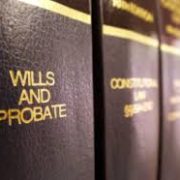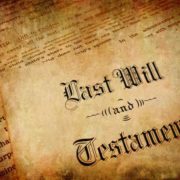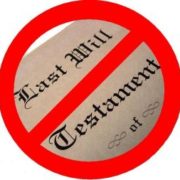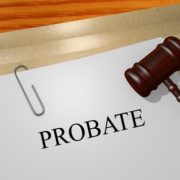Common Questions With Inherited IRA’s
Most of us don’t have millions of dollars in liquid assets to fund our retirements. Ordinary people use common investment tools such as traditional IRAs, Roth IRAs, simplified employee pension plans (“SEPs”), and savings incentive match plans for employees (“SIMPLE IRAs”) to pay for healthcare and living expenses in old age. The main goal for any retirement plan is for an individual or couple to outlive their savings, and often, if proper planning is implemented, this is the case. So, what happens to these retirement accounts after their owners pass away? What do sons, daughters, brothers, sisters, or even close friends do with these accounts if they are named beneficiaries? This is often where inherited IRAs and their confusing rules regarding mandatory distributions come into play. Though creating an IRA is simple, when it comes to inheritance and asset distribution, most people don’t know where to start. That is why an advance discussion with a Cleveland estate planning attorney or tax advisor can give you the information needed to avoid unintended consequences with inheriting an IRA.
- What is an Inherited IRA?
A cavalier attitude for IRA owners and their beneficiaries can lead to paying higher taxes, triggering penalties, or giving up future opportunities for tax-advantaged, or tax-fee, growth. This first step to avoiding these outcomes is to know what an inherited IRA is.
In a nutshell, an inherited IRA is a retirement account that is opened when a person inherits an IRA or employer-sponsored retirement plan after the account holder dies. The assets held in the deceased individual’s IRA is transferred into a new inherited IRA in the beneficiary’s name. Usually, the account is transferred, inherited, via a beneficiary designation. This is why inherited IRAs are also referred to “beneficiary IRAs.” The rules that govern the transfer of the account assets, however, depends heavily on whether the beneficiary is a spouse or non-spouse.
The big concern with inherited IRAs is the schedule for required mandatory distributions, namely when do they have to begin. When required mandatory distributions must begin and how they are measured is nuanced and depends on a variety of factors such as beneficiary age, age of the deceased own, type of IRA, income needs, and creditor protection concerns. Most people are unfamiliar of all the rules and considerations associated with inheriting IRAs, as such, always talk to an experienced Ohio estate planning attorney if you have any doubt with the proper course of action in your circumstances.
- Options for Spouses
The name of the game for spouses is rollover. Spouses can transfer the deceased spouse’s IRA into their name and defer distributions until required mandatory distributions are triggered. (When, however, these distributions must start is a fact sepcfiic question to bring up with your attorney). This rollover allows tax-advantaged growth of the IRA funds to continue with no interruption. It is critical, however, that the spouse take no direct control of inherited IRA funds or else a taxable event will be triggered. The good news is surviving spouses have 60 days from receiving inherited distributions to roll them into their own IRAs without a problem as long as no issues regarding required minimum distribution are present. Note, though rollover is often the most popular option, you always have the option to cash out the IRA, just be aware of what benefits you’re forfeiting and also any potential penalties and/or personal tax liabilities.
- Options for Non-Spouses
Unfortunately, non-spouses do not have the option to rollover and the rules for them are quite a bit more complex. Option one for non-spouses is to disclaim all or part of the deceased owner’s IRA assets. This decision must be made within nine months of the original IRA owner’s death and before possession of the assets occurs. This is usually done by named beneficiaries who wish to avoid being kicked up to a higher tax bracket which, in turn, would practically eat everything inherited anyways via state and federal taxation.
Option two is to cash out the IRA either immediately or within five years. Taxes will be paid on the amount of distribution, but no 10% IRA early withdraw penalty will accrue. With this option the IRA assets must be exhausted by December 31st of the fifth year following the original IRA owner’s death. This five-year period allows some planning to occur to mitigate any potential tax hit, but, if an IRA is large enough, state and federal taxes will eat a large part regardless.
Option three is to transfer assets from the deceased owner’s IRA into an inherited IRA and take required minimum distributions in order stretch out the potential tax hit and fully exploit the tax-advantage status of an inherited IRA. As a general rule, the IRS requires non-spouse inherited IRA owners to start taking required minimum distributions starting December 31 after the year of death of the original account owner, and each year thereafter. Also, distributions from inherited IRAs taken before age 59½ are not subject to a 10% early withdrawal penalty in most cases. The rules and guidelines regarding these required mandatory distributions can be confusing and are highly dependent on the particular facts surrounding the IRA inheritance.
The calculated amount of required mandatory distributions for non-spouses is determined via IRS life expectancy tables, IRS required mandatory distribution guidelines, and IRS criteria based on your age, life expectancy, number of named beneficiaries, type of original IRA, and age of deceased IRA owner. When distributions must start, if at all, how much each distribution must be, and whose life expectancy will govern the distribution schedule are each questions that all competent estate planning attorneys will discuss with you and plan for. Planning IRA inheritance for non-spouses is no easy task but it represents an often critical retirement issue that goes unaddressed and causes massive tax problems for beneficiaries.
Most people who use retirement accounts are at least semi-knowledgeable when it comes to creating and managing IRAs, but very few are concerned about what happens after they pass on. This is where your legal and tax advisers come in. Proper planning and conversation with your estate planning attorney can avoid higher taxes for beneficiaries, triggering penalties, and giving up future tax-advantaged, or tax-fee, growth. Properly planning for retirement not only is a concern for you, but also for the friends and family you leave behind.
Disclaimer:
The information contained herein is general in nature, is provided for informational and educational purposes only, and should not be construed as legal or tax advice. The author nor Baron Law LLC cannot and does not guarantee that such information is accurate, complete, or timely. Laws of a particular state or laws that may be applicable in a given situation may impact the applicability, accuracy, or completeness of the preceding information. Further, federal and state laws and regulations are complex and subject to change. Changes in such laws often have material impact on estate planning and tax forecasts. As such, the author and Baron Law LLC make no warranties regarding the herein information or any results arising from its use. Furthermore, the author and Baron Law LLC disclaim any liability arising out of your use of, or any financial position taken in reliance on, such information. As always consult an attorney regarding your specific legal or tax situation.










